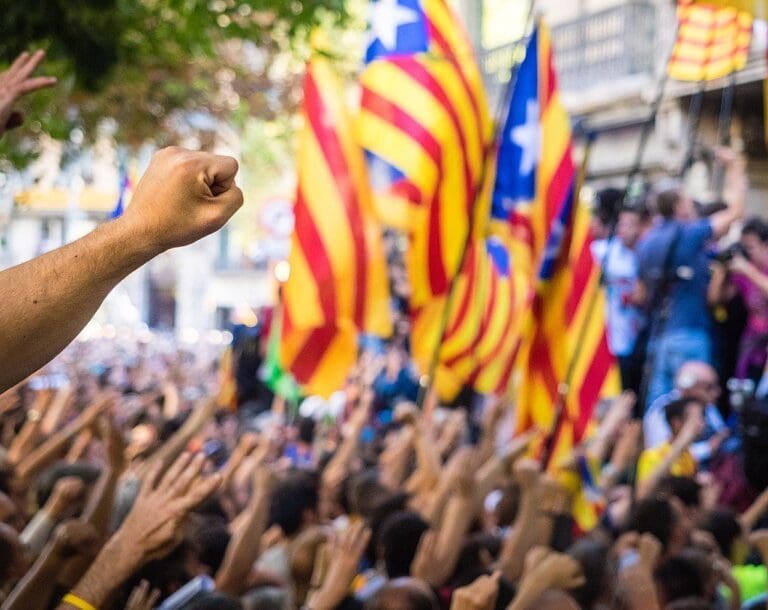Karl Marx famously wrote: “History repeats itself, first as tragedy, second as farce”.
The phrase might well have been coined with Catalonia in mind.
Generalissimo Franco began a military coup against the elected Spanish government in the Canary Islands in 1936. The battle spread across Spain, and Catalonia was the last redoubt of the Republic to fall, in 1939. Franco took brutal revenge. Tens of thousands were imprisoned or executed, many of these within living memory. The Catalan language was banned.
Now the Catalans have proclaimed independence and Spain has imposed direct rule.
We do not of course know how events will pan out this time around. Things may turn serious. Yet there is certainly a slapstick element to having two different sets of police on the streets, and two different groups of civil servants, each taking different sets of orders.
In both the late 1930s and now, economics has a potentially decisive role in the eventual outcome.
There are many reasons for Franco’s victory. An important one is that the Republican side could just not obtain enough modern armaments. Catalonia even then was the richest part of Spain, but the arms the Catalans needed were made abroad, and, as the civil war progressed, increasingly they could not afford them.
A leading element in the Catalan government was the Workers’ Party of Marxist Unification (POUM in Spanish). POUM was inspired by Leon Trotsky, in much the same way as Jeremy Corbyn and his close acolytes appear to be today.
Sympathy for the historical role of POUM goes a long way to explaining why Corbynistas are enthusiastic supporters of the contemporary Catalans.
But POUM made a catastrophic mistake: initiating a policy of expropriating private property. One effect was a major loss of confidence, and the collapse of the Republican peseta on the foreign exchanges, meaning that all imports, not just weapons, became punitively expensive.
Another generalissimo who was a political contemporary of Franco, one Joseph Stalin, described Trotskyists as a “gang of wreckers and diversionists”. In this, at least, he was surely correct.
This time, the Catalans are desperately trying to create separate a currency, using technology based on digital tokens. Their government is considering an e-residency programme such as the one in Estonia. This provides a way to operate a location-independent business online.
More traditional businesses have already voted with their feet. Almost 1,700 companies, including two big banks (Sabadell and CaixaBank), have switched their headquarters to other parts of Spain since the crisis escalated at the start of October.
The EU has made it clear that an independent Catalonia would not be a member of either the EU or the Eurozone. The latter would probably be a decided advantage, but effective expulsion from the EU could cause serious short term dislocations.
It is not just loyalty to Spain which is leading a lot of Catalans to demonstrate against independence. Whatever the long term outlook, the immediate economic costs would be substantial.


